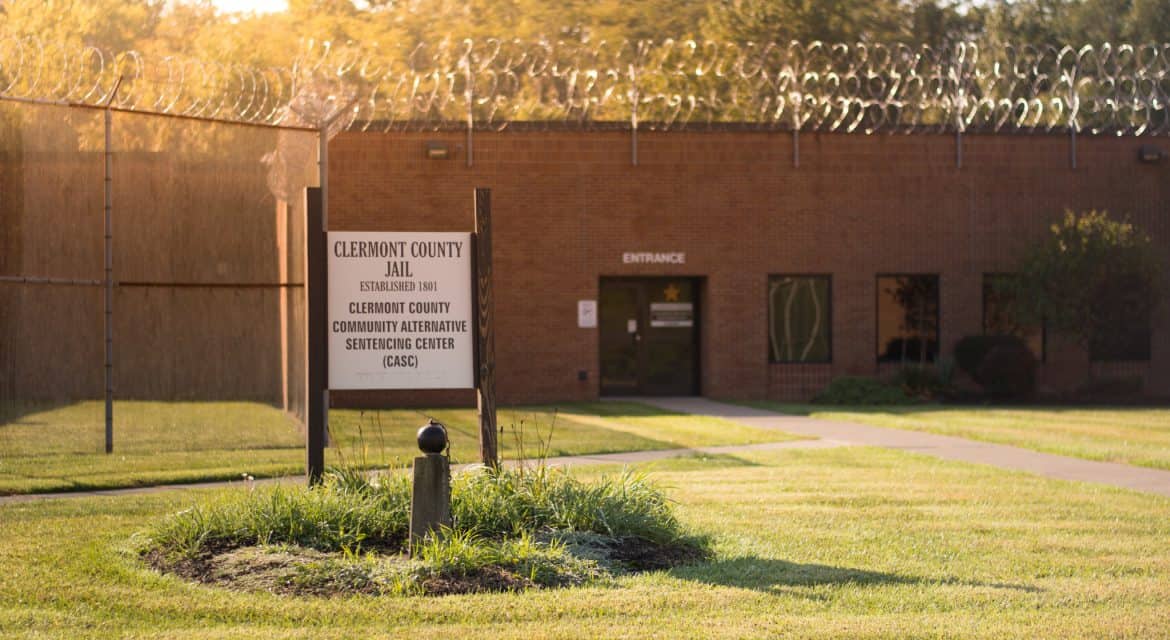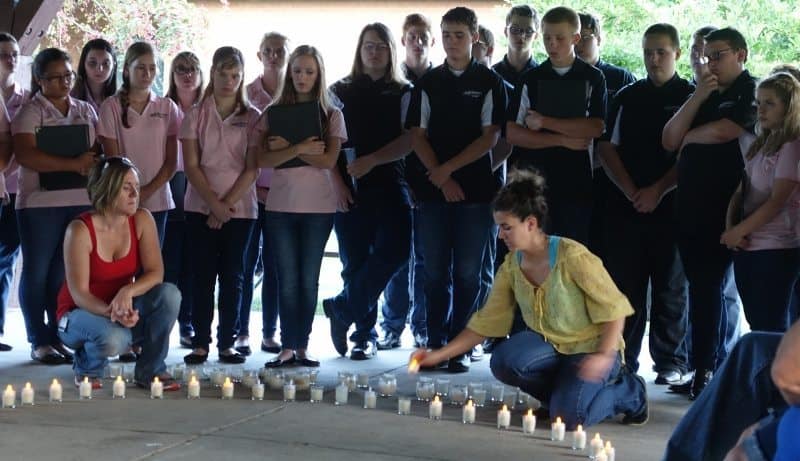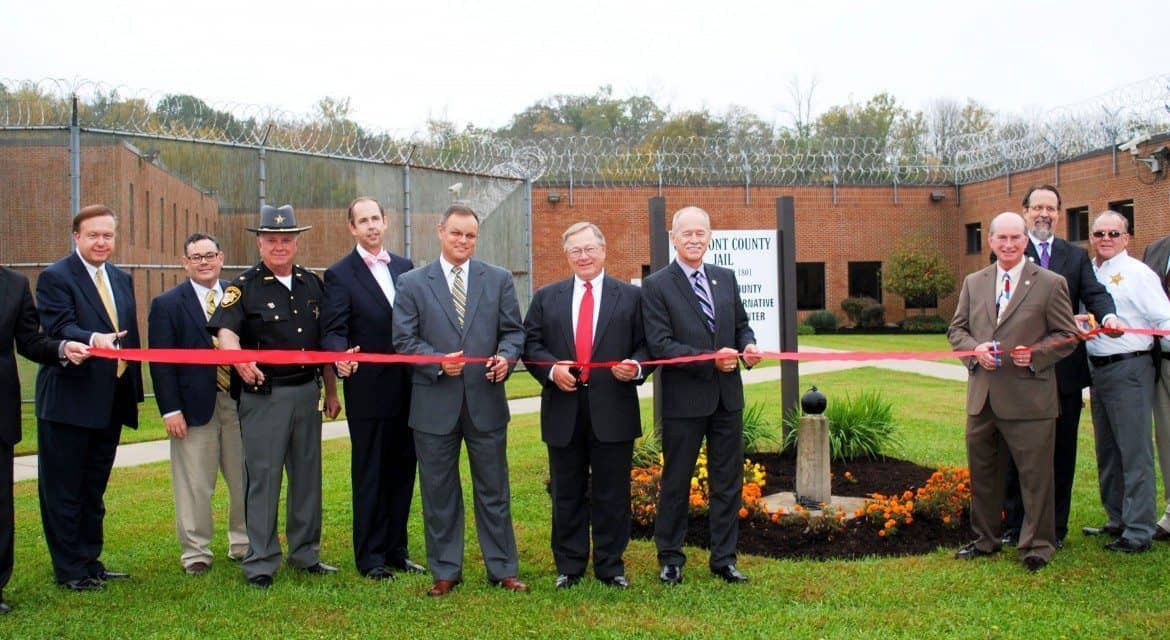BATAVIA, Ohio (Sept. 1, 2017) – The Ohio Department of Health has released its report on 2016 drug overdose deaths. Although the number of overdose deaths across the state increased for the seventh straight year, Clermont County’s overdose death totals dropped for the first time since 2009.
In 2016, there were 96 deaths related to drug overdoses in the county, compared to a record high of 105 in 2015. The finding was just one of several released by the Ohio Department of Health in its 2
016 Ohio Drug Overdose Data: General Findings.
While Clermont County did see a decrease in overdose deaths from 2015 to 2016, its death rate (based on a six-year average from 2011-2016) remains near the highest in Ohio. Only Montgomery, Butler, and Brown counties have a higher rate.
Statewide, the number of drug overdose deaths increased by 32 percent, going from 3,050 in 2015 to 4,050 in 2016.
While the number of heroin-related overdose deaths in Ohio remained somewhat steady, the number of fentanyl-related overdose deaths more than doubled from 2015 to 2016. There were 1,155 overdose deaths in Ohio from fentanyl and related drugs in 2015, and that number increased to 2,357 deaths in 2016.
“We have a long way to go and would like to see these numbers continue to decline, but this is an encouraging start,” said Health Commissioner Julianne Nesbit. “The Opiate Task Force has been hard at work addressing the drug epidemic, and this is a small accomplishment for all of the work the members have done.”
“It is a sad reality, but without the use of naloxone, these numbers could be much higher,” said Nesbit. Clermont County Public Health, along with the Clermont County Mental Health and Recovery Board, have been instrumental in making naloxone (better known by its brand name Narcan) more available to citizens in the county as well as local law enforcement and EMS agencies.
For more information on the Clermont County Opiate Task Force, visit its website at https://www.getcleannowclermont.org.
For the full report from the Ohio Department of Health, click here.
#####
Clermont County Public Health (CCPH) is dedicated to the mission of striving to improve Clermont County by preventing disease, promoting health, and protecting the environment. For more information, visit http://www.ccphohio.org or call 513-732-7499.

BATAVIA, Ohio (Aug. 24, 2017) — Partnerships are crucial when it comes to dealing with mental health issues among inmates at the County Jail, said Administrator Joe Palmer.
“I don’t know how we could operate now without our wonderful partners,” he said.
Those partners include the Clermont County Mental Health & Recovery Board, whose levy funds the Mobile Crisis Team. (Mobile Crisis is operated by Child Focus Inc.) Renae Butcher, a social worker from Mobile Crisis, is now working full time at the jail, helping to assess inmates who appear to be dealing with a mental illness.
The Mobile Crisis Team also assists the Mental Health and Recovery Board in providing Crisis Intervention Training to law enforcement and corrections officers in Clermont County, teaching them through role-playing and other exercises how to react to and work with those who show signs of mental illness when they are responding to a call, or encounter them in jail. At least 60% of corrections officers have completed the training.
Another partner is Greater Cincinnati Behavioral Health Services (GCB), which has two locations in Clermont County, one for mental health services in Amelia and the Clermont Recovery Center for addiction services in Batavia.
Recently, a memorandum of understanding between the County Jail and GCB allows the sharing of a database between the two. This allows corrections officers to determine whether a new inmate is a GCB client. “Joe Smith comes in, we put him in our system and cross-check with GCB,” Palmer says, giving an example. “We notify GCB – Joe Smith is here, you can come see him. Now we know what medications he needs, we know what his particular mental health issue is. It’s a win-win for everybody.” (A legal opinion from the Hamilton County Prosecutor said this did not violate doctor-patient privilege.)
“If you have mental health issues, you do not leave here without a referral to Greater Cincinnati Behavioral Health Services,” Palmer added. “A case worker will come here to see you before your discharge. We’re doing our very best to make sure that your mental health needs are provided for.”
A grant just awarded to MHRB from the Ohio Department of Mental Health and Addiction Services has allowed for Butcher’s position to move from part-time to full-time at the jail, and will allow GCB to hire a full-time case manager to work with inmates upon their release from jail, connecting them to treatment options.
########

BATAVIA, Ohio (Aug. 24, 2017) – It’s no secret that jails in the United States have become homes, and sometimes havens, to those with mental illness. National studies have shown that nearly 15% of men and 30% of women booked into jails have a serious mental health condition, according to the National Alliance on Mental Illness.
Clermont County has long recognized that and was one of the first counties in the nation to join the “Stepping Up” Initiative developed by the National Association of Counties (NACo) to reduce the number of people with mental illness in jail. According to Karen Scherra, Executive Director of the Mental Health and Recovery Board (MHRB), “Clermont County’s collaborative efforts to address this issue have been recognized at the state and federal level and have assisted many individuals with getting needed treatment services.”
Now, a grant for $83,333 that MHRB was awarded from the Ohio Department of Mental Health and Addiction Services will put more resources toward screening and possible diversion of those with mental illness into treatment programs.
Every day, corrections officers at the Clermont County Jail encounter inmates who have a mental illness. In 2016, an average of 22 people were put on suicide watch every month at the County Jail. The jail has strict protocols it follows to make sure that inmates who have mental health issues are treated appropriately. But first and foremost, is the philosophy behind it, said jail Administrator Joseph Palmer: “You are not here to die,” he said. “We will do everything possible to preserve your humanity.”
Screening for mental illness
All corrections officers are instructed in how to screen inmates for mental illness, and are trained on how to work with people in crisis. They also depend on the expertise of social worker Renae Butcher, a member of the Clermont County Mobile Crisis Team. The grant has allowed her to move from part time to full time at the jail, where she screens inmates for possible mental illness and works with them during crises. The grant will also allow a full-time case manager to be hired who will connect inmates with resources as they are released.
Additionally, medical staff at the jail includes a nurse who specializes in mental health, and a psychiatrist who visits the jail twice a month, and is available to take nurses’ calls at any time.
It all begins, says Palmer, with a screening form at inmate intake. “If someone is suffering from psychosis or DTs (delirium tremens), we will know that and they will be refused admittance,” he said. “We don’t have to accept you,” he said. “We must be able to accept you safely and securely.”
“One of the basic things we do is ask, does this person need to be in a hospital instead of a jail?” said Denny Moell, who heads the Mobile Crisis Team, which is managed by Child Focus Inc. and funded by MHRB. “We evaluate and assess them. Most of the time, they can stay in jail. Sometimes we refer them for further evaluation at Summit Behavioral Health in Hamilton County. Summit can do a longer-term admission. They have a forensic unit – so they can handle those who are coming from jail.”
Added Butcher: “If the inmate seems suicidal, we see if we can get them calmed down. Can we keep them in jail safely, or do we need to move them to Mercy Clermont or Summit?” So far in 2017, nine inmates have been referred to Summit.
Suicide watch precautions
There are two levels of suicide watch at the jail. “If we even SUSPECT you’re suicidal, you’re put on Level 1 or Level 2 watch immediately,” Palmer said.
The Sheriff’s Office has a set of policies that outline procedures to take whenever an inmate is placed on Level 1 or Level 2 watch. These include securing the inmate, administering first aid and summoning medical assistance, completing a questionnaire with the inmate, and removing any clothing items that might assist in suicide. Inmates are issued safe gowns and blankets and are placed in holding cells.
For a Level 1 watch, inmates are checked at least every 10 minutes. For a Level 2 watch, they are put in a cell in front of the booking area and continuously monitored.
Palmer says the sheriff’s protocols err on the side of protecting life. “We put more people on a Level 1 or Level 2 watch than any other medium-level jail in Ohio,” he said. “The Chief of Operations for the Department of Corrections told us that. ‘The inspector says, you don’t take any chances, do you?’ And I said, ‘No, no chances with a human life.’”
The Sheriff’s Office contracts with Southern Health Partners for all medical, dental and mental health services at the jail. The current two-year contract for 2017-2019 is $1.65 million. This includes nursing staff – at least one nurse at all times, and sometimes as many as three; a mental health nurse twice a week, and a psychiatrist twice a month. The psychiatrist can prescribe psychotropic drugs over the phone should an inmate need them, Palmer said.
“While you are here, we are going to do our very best to make sure that your mental health needs are provided for,” Palmer said. “Because we’re dealing with a person’s life.”
#########

BATAVIA, Ohio (Aug. 22, 2017) — The Clermont County Suicide Prevention Coalition will host its 16th annual candlelight vigil to remember, honor, and cherish the lives of those individuals lost to suicide in Clermont County over the past year on Wednesday, Sept. 13. More than 5 million living Americans have lost a close family member or friend to suicide.
Anyone whose life has been touched by suicide is welcome to attend and pay tribute to their loved one. There will be a ceremonial lighting of candles, balloon release, and performance by West Clermont By-Request Choir. Refreshments will be provided following the vigil.
Details:
Date: Wednesday, Sept. 13
Where: Union Township Veterans Memorial Park
Glen Este-Withamsville Rd.
Cincinnati, Ohio
Time: 6:30-8 p.m.
Contact: Lee Ann Watson, 513.732.5400
The event is sponsored by the Clermont County Mental Health & Recovery Board.
#########

BATAVIA, Ohio (July 14, 2017) – Clermont County Commissioners approved on July 12 the expansion of the Community Alternative Sentencing Center (CASC) to serve women. The CASC, which has been open since September 2015 under the management of Greater Cincinnati Behavioral Health Systems, provides an alternative to jail for misdemeanants who are convicted of drug- or alcohol-related crimes.
Since 2015, the CASC has served men. It provides various kinds of treatment and therapy, including medication-assisted treatment (MAT), cognitive behavioral therapy, sober recovery meetings, and work readiness classes. It is funded by Clermont County, and its current budget is $440,800.
Now, thanks to a grant from the federal 21st Century Cures Act, Clermont County will start admitting women to the CASC as of Sept. 1, said BCC President David Uible. “This will allow us to address a gap in our attempts to address this crisis. We have wanted to offer this treatment alternative to women, and the grant will allow us to do so.”
Under the Cures Act, $26 million was allocated to the State of Ohio to fight the opioid epidemic. Clermont County, as one of the top 15 counties in the state most affected by the crisis, was given priority in the grant process, according to Karen Scherra, Executive Director of the Clermont County Mental Health & Recovery Board (CCMHRB), who led the application for the grant.
CCMHRB is receiving approximately $418,000 in the first year of the grant and up to $700,000 in the second year, which is being provided to the County to fund the CASC program. By the second year, the county hopes to serve up to 25 women in the pod. Medication-assisted treatment will be emphasized, Scherra said.
“We were very pleased to be awarded funding to expand CASC to women, which will allow a greater access to needed services and a better chance for recovery,” Scherra said.
The CASC, which operates in a wing of the County Jail, will operate its women’s pod completely separated from the men’s. The new staff will include an admissions coordinator, three counselors, three aides, a part-time employment specialist, and a recovery coach. It will also include dedicated hours from a physician and nurse.
The Community Alternative Sentencing Center – the only one in the State of Ohio – is a voluntary program. Municipal Court judges refer misdemeanants to the CASC if they think they will be good candidates for treatment as opposed to incarceration. Since it began operating under the management of Greater Cincinnati Behavioral Health, the CASC has admitted 378 men. Of those 307 have successfully completed the program, with many transitioning into continued services and supports in the community.
#########
 The Clermont County Mental Health & Recovery Board (MHRB) awarded 15 mini-grants to local organizations for the period of July 1, 2017 – June 30, 2018. The MHRB plans, funds, and monitors mental health and substance abuse services locally. The grants will fund programs that enhance mental health and/or prevent substance use disorders in Clermont County. The grant applications were initially reviewed by a three-member committee. A total of $40,000 was allocated, with maximum funding per project of $4,000.
The Clermont County Mental Health & Recovery Board (MHRB) awarded 15 mini-grants to local organizations for the period of July 1, 2017 – June 30, 2018. The MHRB plans, funds, and monitors mental health and substance abuse services locally. The grants will fund programs that enhance mental health and/or prevent substance use disorders in Clermont County. The grant applications were initially reviewed by a three-member committee. A total of $40,000 was allocated, with maximum funding per project of $4,000.
The organizations selected are:
Amelia Elementary School: To help students who are struggling with toxic and traumatic stress and to create a trauma-sensitive school with tools aimed at improving mental health and recovery.
Cathy Barney, Artsy Fartsy Saturdays: To help children tap into their creative spirit, find their voice, be comfortable, and safely explore the world around them – things that they may not otherwise find anywhere else.
Clermont Northeastern Schools, CNE Rockets Clubs: To engage students in the middle school community and provide a positive outlet for afterschool activities and student accountability.
Goshen Middle School, Family Parenting Classes: To help students with identified mental health needs by making connections with parents of students who are having difficulty in school as a result of trauma or other significant issues.
Goshen War on Heroin: To provide transportation for addicts to get to recovery-related appointments and to allow for ongoing supportive relationships with those in recovery.
Meadowview Elementary, Meadowview MonSTARs: A Positive Behavioral Intervention and Support (PBIS) program that guides implementation of evidence-based practices to improve student behavior and outcomes. PBIS improves student outcomes by improving the school environment, decreasing school discipline issues, and preventing social, emotional, and behavioral issues.
Milford Junior High School, Character Day: To engage students in a day of activities that will stretch the students and allow them to see that everyone has a story and to create an environment in which snap judgments and misconceptions are a thing of the past.
Milford Exempted Village School District, Success Academy: To provide a blended learning environment, with both online and face-to-face instruction, providing academic, social, and emotional supports that re-engage students in preparing for post-secondary success and meaningful participation in their community.
Seipelt Elementary School, Positive Behavioral Intervention and Supports (PBIS): To get students focused on the “SOAR” model of character traits: Safety, Ownership, Attitude, and Respect. The program is intended to improve student outcomes by improving the school environment, decreasing school discipline issues, and preventing social, emotional, and behavioral issues.
Surviving Our Loss and Continuing Every Day (SOLACE), SOLACE Scholarship Program: To sponsor and assist individuals seeking to move into recovery housing and provide a support hotline for individuals and families affected by substance use disorders.
United Way of Greater Cincinnati-Place Matters, Teens Against Bullying: To engage Williamsburg High School students in a Photovoice project to increase their awareness of bullying and its effects by encouraging reflection and introspection through narrative photography as a prevention intervention.
West Clermont Middle School, Thriving Learning Communities (TLC) Program: An evidence-based program that helps students build social and emotional competencies, including self-awareness, development of positive relationships, and responsible decision-making, leading to a positive impact on students’ mental health and well-being.
YMCA of Clermont County, Spark Program: To provide youth with programs that support academic achievement, foster healthy growth and development, and help build positive life skills.
YWCA of Greater Cincinnati-Eastern Area, House of Peace: To provide therapeutic support groups to survivors of intimate partner violence that is often a result of substance use and post-traumatic stress disorders.
YWCA of Greater Cincinnati-Eastern Area, Transform Adolescent: To help adolescents who are at risk for violent behaviors, including domestic violence, gang violence, dating violence, school violence and other types of violent or abusive behaviors.
Additional information on the mini-grant awards, the programs, and about mental health or substance use disorders can be obtained by contacting the Mental Health & Recovery Board at 513.732.5400 or visiting their website at www.ccmhrb.org.
#########

BATAVIA, Ohio (May 25, 2017) — Clermont County residents who have an interest in assisting with the direction of local addiction and mental health services in the county are invited to contact the Clermont County Mental Health and Recovery Board (CCMHRB) about volunteer positions on its Board of Directors.
 There are currently two vacancies on CCMHRB’s Board of Directors. As of July 1, there will be an additional four vacancies, as four current board members will have served their full terms and will be leaving the Board.
There are currently two vacancies on CCMHRB’s Board of Directors. As of July 1, there will be an additional four vacancies, as four current board members will have served their full terms and will be leaving the Board.
The Board of County Commissioners is responsible for appointing eight members of the board. Three of the vacant positions will be appointed by the County Commissioners, from applications gathered and reviewed by the CCMHRB. Applicants must be a resident of the county and have an interest in mental health and/or alcohol/drug issues.
Three positions will be appointed by the Ohio Department of Mental Health and Addiction Services (OMHAS), which is responsible for appointing six board members. Priorities for these OMHAS appointments will be to a person who has received services for mental health issues or alcohol and/or drug use, a family member of someone who has or had a mental health or addiction issue, or someone who is working or has worked in the mental health or addiction field, or who has been involved in advocating for mental health and/or alcohol/drug services.
The selected individuals will be part of a 14-member board representing a variety of interests, including professionals from the mental health and alcohol/drug fields, family members, individuals in recovery, and community representatives. The board meets monthly on the second Monday of the month at 7 p.m.; members also are involved periodically in committee meetings. Terms for Board members are four years, and a member can serve two terms.
CCMHRB is the local board of alcohol, drug addiction, and mental health services. It is the county agency responsible for planning, monitoring, evaluating, and funding all mental health and addiction services in the county provided through public dollars.
If you are interested in serving on the Board, please send a letter of interest and a resume to CCMHRB at 2337 Clermont Center Drive, Batavia, OH 45103 or by email to cknoblauch@ccmhrb.org. For more information, call the CCMHRB office at 513.732.5400.
######
 BATAVIA, Ohio (April 17, 2017)– In a continuing effort to foster activities that promote positive mental health and prevent substance abuse, Clermont County Mental Health & Recovery Board (MHRB) will fund “mini-grants” again for the upcoming year.
BATAVIA, Ohio (April 17, 2017)– In a continuing effort to foster activities that promote positive mental health and prevent substance abuse, Clermont County Mental Health & Recovery Board (MHRB) will fund “mini-grants” again for the upcoming year.
The Board is looking for innovative projects that will positively affect mental health and/or prevent substance abuse for any age group. A total up to $40,000, from the Board’s levy funds, is available for programs serving Clermont County residents. The maximum funding per project is $4,000. The grant period is July 1, 2017, through June 30, 2018. Any organized group in Clermont County – with the exception of the contract agencies of the Mental Health & Recovery Board – can apply for funding.
Previously funded applicants are eligible to reapply. Applicants must have a financial structure in place to account for the awarded funds. Funds may not be used to cover ongoing operating expenses.
To apply for a mini-grant, please submit a brief proposal that includes the name, address, email address and phone number of the contact person, a description of the activity/purpose for which the grant will be used, an explanation of how the activity will promote positive mental health and/or prevent substance abuse, a description of what part of the activity the mini-grant will fund if used with other monies, the date(s) of activity, and the amount of the funding request. Mini-grant funds cannot be used to purchase equipment such as iPads, iPods, tablets, or other electronic items. The funds can be used for materials, supplies, and/or food for activities planned.
Proposals must be submitted no later than Friday, May 12, 2017, to: Mini-Grant Project, c/o Cindy Knoblauch, Clermont County Mental Health & Recovery Board, 2337 Clermont Center Drive, Batavia, OH 45103.
Last year, the MHRB funded a total of 29 mini-grants to 22 separate organizations. Eight schools in Clermont County received grants that assisted in initiating activities that helped children stay drug-free and established mentoring programs. In addition, grants were awarded to other agencies providing services directed to community members, such as the Coalition for a Drug-Free Clermont County and Safe Harbor of Hope.
Any group receiving funding is required to submit a report to the Mental Health & Recovery Board on its efforts and outcomes following completion of the activity. A final accounting of funds must be submitted within 60 days of the end of the activity. All unused funds must be returned to the MHRB.
It is possible that mini-grants may not be available in the future or that a project funded once may not receive funds a second time, so mini-grants should be viewed as one-time only funds.
If you have any questions about applying for these grants, call the Clermont County Mental Health & Recovery Board at 513.732.5400.
######
 BATAVIA, Ohio (March 22, 2017) – In an effort to address the safety and economic threat of drug abuse in the workplace, organizations in Clermont County are partnering with Working Partners® to launch the Working Partners® Drug-Free Workforce Community Initiative. A critical element of this Initiative is the collection of data to assess business perceptions, attitudes, knowledge and practices as they relate to preventing and addressing substance abuse in the workplace/workforce. Initiative leadership recently began the process of collecting this data through the Business and Community Leader Surveys.
BATAVIA, Ohio (March 22, 2017) – In an effort to address the safety and economic threat of drug abuse in the workplace, organizations in Clermont County are partnering with Working Partners® to launch the Working Partners® Drug-Free Workforce Community Initiative. A critical element of this Initiative is the collection of data to assess business perceptions, attitudes, knowledge and practices as they relate to preventing and addressing substance abuse in the workplace/workforce. Initiative leadership recently began the process of collecting this data through the Business and Community Leader Surveys.
The surveys will gather information about the perceived prevalence and impact of substance abuse on the workplace/workforce; the perceived quality and quantity of the community’s workforce; the extent that components of a drug-free workplace program are being administered (e.g., policy, testing, education/training, assistance); prevalence of job seekers and employees testing positive for drugs; attitudes and practices around offering second chances to job seekers and employees who test positive; knowledge of community-helping resources; and attitudes about substance abuse prevention and treatment.
“We are thrilled to have communities across the state collecting data that will help fuel the Initiative’s overall goal which is to increase an employable, drug-free workforce in Ohio,” said Dee Mason, founder and CEO of Working Partners®. “The data we plan to collect through these surveys has not been gathered before on a statewide level, nor does it exist in the country. It will give us an accurate picture of each county and the data needed to provide necessary recourses where they will be most impactful.”
The initiative was brought to the county by the Clermont County Mental Health and Recovery Board through a $20,000 grant provided by the Ohio Department of Mental Health and Addiction Services. The local initiative is led through a collaboration of the CCMHRB, Greater Cincinnati Behavioral Health Services, and the Clermont County Chamber of Commerce.
The Business Survey is being distributed to a representative sample of local businesses and other organizations and completed by leaders with strong infrastructure knowledge about their companies or organizations. The Community Leader Survey will be distributed to community leaders who have insight into the issues and needs of the county’s business community. Survey data will be supplemented with secondary data and used to compile a community report that will guide the effort to develop a strong, drug-free workforce in Clermont County.
“We realize that these surveys will provide critical data for our community report and we are working hard to get input from as many meaningful respondents as we can,” said Clermont County Commissioner Ed Humphrey, who is a member of the Initiative. “This data will help bring to light the issues we face in our community and help us tackle this issue in a focused way and have a true impact.”
OhioMHAS and Working Partners® have developed a public-private partnership to move the Working Partners® Drug-Free Workforce Community Initiative forward throughout the state. The initiative will support local employment strategies related to drug-free workplaces. OhioMHAS has provided funding for 17 local communities to work with Working Partners® to convene and coordinate stakeholders to assess specific community needs and develop local action plans to develop strong local drug-free workforces by employing a variety of best practices that meet these needs.
###
MEDIA CONTACT: Andrea Paul-Taylor, GCBHS, apaultaylor@gcbhs.com or 513-354-7197.

BATAVIA, Ohio (March 9, 2017) – Interested in learning more about county government and how your tax dollars are spent? Clermont County is celebrating National County Government Month – April – by holding open houses on consecutive Tuesdays in April. The public is invited and is asked to register at www.clermontcountyohio.gov/national-county-government-month or call Kathleen Williams at 513.732.7597.
Tuesday, April 4: Meet Your Commissioners
10-11 a.m.: 101 E. Main St., Batavia, Third Floor
Meet the Commissioners in Session Room. Learn about the basics of county government, the BCC’s responsibilities, what’s on tap for 2017. Q&A.
Tuesday, April 11: #GreenClermont – Protecting our water & environment
10 a.m.-noon Bob McEwen Water Treatment Plant, 3960 Greenbriar Road, Batavia
Take a tour of the plant and learn from our Water Resources team how water is treated in Clermont County. Q&A. Also participating: Office of Environmental Quality and Soil & Water Conservation District.
Tuesday, April 18: Law, Order and Justice
11 a.m.-noon: Sheriff’s Office , 4470 SR 222, Batavia
Meet Sheriff Leahy and his chiefs. What is the Sheriff’s Office responsible for? What are its biggest challenges? Q&A.
Concurrent:
1-2 p.m.: Municipal Court, 4430 SR 222, Batavia: Representatives from Municipal Court, the Prosecutor’s Office and Public Defender’s Office talk about their roles and how the court functions. Q&A.
1-2 p.m.: Common Pleas Court, 270 E. Main St., Batavia: Representatives from Common Pleas Court, the Prosecutor’s Office and Public Defender’s Office talk about their roles and how the court functions. Q&A.
Tuesday, April 25: Supporting Families & Healthy Living
10 a.m.-11 a.m.: Representatives from Children’s Protective Services, Child Support Enforcement, and Developmental Disabilities on how their agencies make a difference. Q&A.
11 a.m.-noon: Representatives from Clermont Public Health and Mental Health & Recovery Board talk about their initiatives and challenges. Q&A.
Both sessions at Engineer’s Training Room, 2381 Clermont Center Drive, Batavia.
#########